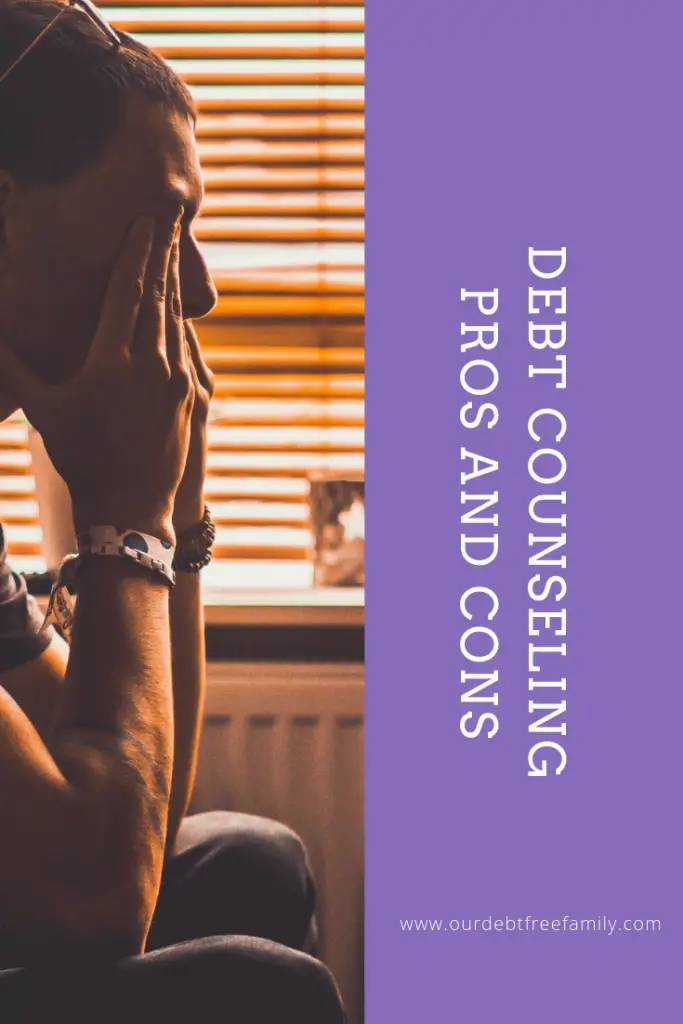
Not everyone can tackle debt without professional help. Sometimes, finding a counselor is the best option. However, it certainly isn’t for everyone. Here are a few debt counseling pros and cons to consider before you make a decision.
Debt Counseling Pros and Cons
When it comes to debt counseling, there are a number of things to consider. Most importantly, is counseling the right option for you?
Cons to Consider
Before delving into the ways debt counseling can be beneficial, let’s take a look at why debt counseling may not be the best option for you.
First, credit counseling services cannot manage all of your debts. For the most part, they can only help handle unsecured debts.
Not to mention, enrolling in debt counseling services can actually hurt your credit score. Being enrolled can also hinder your score from rising for some time, despite your best efforts.
A debt counseling program typically lasts five years. You cannot miss a payment within that five-year period because you may slip into default. This will mean your debt will remain on your credit report, despite any progress made paying.
These services aren’t free either. In many cases, there is a monthly fee to manage your debt. If you pay $50 a month for five years, you’ll wind up paying $3,000 in monthly fees alone. Most people who enroll in debt repayment programs also don’t wind up repaying all of their debt.
Lastly, most credit and debt counseling services have quotas they must meet every month. There will always be a conflict of interest between what’s best for the company and what is best for the client. In some cases, counselors will enroll someone in the debt repayment program when bankruptcy may have been a better choice for the consumer.
Pros of Debt Counseling
There are far fewer pros to debt counseling than cons, unfortunately. One plus is that if you are looking for more counseling in other areas, say housing or pre-bankruptcy counseling, many of these companies offer those services as well. Their bottom line, however, is to enroll consumers into a debt management plan.
Once you are enrolled in a debt management plan (DMP), you only have to make one single payment a month. When you make that payment, the debt counseling agency then distributes it to the lenders you owe.
Those payments may be lower and help you in the immediate future with financial trouble. Enrolling in a debt counseling program can help you lower your monthly payment and interest rate. You want to keep in mind that you’ll be making those payments for five years. So, in the end, it could be more of a burden than anything.
Of course, there’s nothing wrong with enrolling in a debt counseling program. However, you’ll want to fully consider each of these debt counseling pros and cons before you do. Be sure to think about all the debt repayment options available to you and try getting advice from a financial advisor before taking on a DMP.
Readers, what is your take on debt counseling?
Leave a Reply